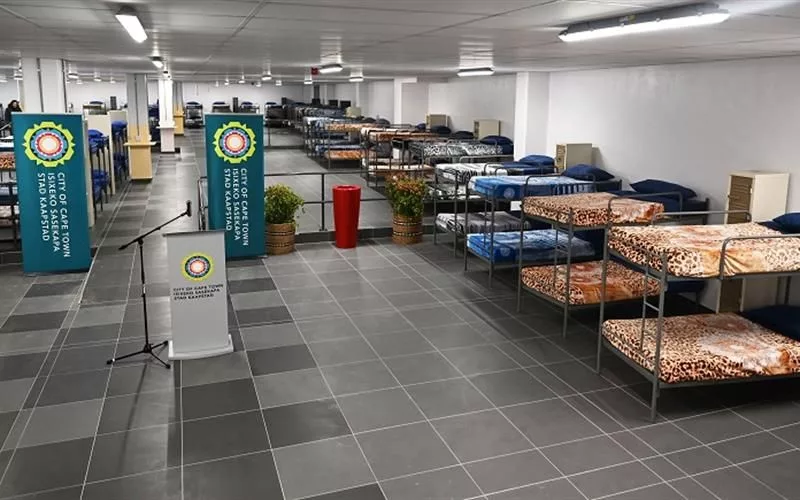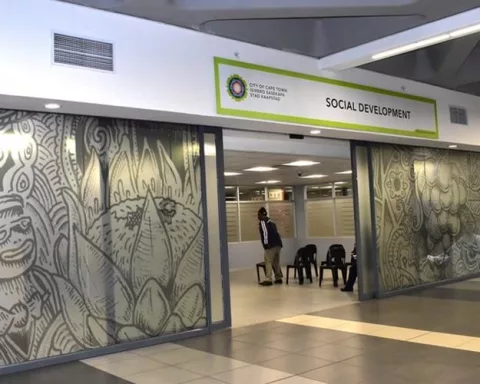Cape Town has opened a new Safe Space facility in Green Point, providing shelter, transitional housing, personal development planning, job opportunities, and referrals for mental health, medical, and addiction treatment services to the homeless community. With a total capacity of 1070 beds across all centers, the Safe Spaces funded by the city’s coffers offer a unique approach to homelessness, going beyond providing shelter and warmth to provide sustainable solutions and social programs. Cape Town’s commitment to helping the homeless sets a global example, demonstrating that with investment and dedication, it is feasible to establish a caring, supportive environment for those most vulnerable.
What is Cape Town’s Safe Space?
Cape Town’s Safe Space is a unique approach to tackling homelessness that goes beyond providing shelter and warmth. The city’s Safe Spaces offer transitional shelter, social programs, personal development planning, job opportunities, and referrals for mental health, medical, and addiction treatment services. The latest Safe Space facility in Green Point has the capacity to house approximately 300 people, and the city has a total capacity of 1070 beds across all centers. This initiative sets a global example of how to establish a caring, supportive environment for those most vulnerable.
Cape Town, South Africa, a city pulsating with life and culture, hit a high humanitarian and societal note on 28th July 2024. The city’s Mayor, Geordin Hill-Lewis, in collaboration with Councillor Patricia van der Ross, inaugurated an awe-inspiring new Safe Space refuge, specifically created to serve those who have made the city streets their abode.
Landmark Shelter in Green Point
The new project is nestled in the vibrant neighbourhood of Green Point, taking up part of the municipal depot on Ebenezer Road. This latest gem enriches the city’s cluster of Safe Space facilities, an emblem of optimism with the capacity to house approximately 300 people. This fifth installation has surged the total capacity across all centres, achieving a remarkable tally of 1070 beds.
The city’s Safe Spaces, funded by the city’s coffers, have a distinct approach to tackling homelessness. They stretch beyond merely provision of shelter and a warm place to rest. The emphasis is more on transitional shelter coupled with a range of social programs, all targeting a sustainable reintegration of individuals into society. The mission extends further with strategies for personal development planning, facilitation of job opportunities, and referrals for mental health, medical and addiction treatment services.
Cape Town’s Innovative Approach to Homelessness
The humane and innovative approach of Cape Town is visible in the other Safe Spaces scattered throughout the city. The eastern central business district, or CBD, is proud to have one such facility at Culemborg, equipped with 510 beds. Paint City Bellville and Durbanville provide a respective 220 and 40 beds. There is also a future project planned to serve the greater Muizenberg area.
Mayor Geordin Hill-Lewis echoed the city’s dedication, stating, “It is a delight to launch this brand new Safe Space in Green Point that significantly boosts our shelter capacity to aid more people off the streets in central Cape Town.” He underscored the unparalleled investment of R220 million to establish and maintain these Safe Space shelters across the city. This financial commitment mirrors the city’s determination to prioritize social development in their efforts to assist the homeless.
Mayor Hill-Lewis firmly believes that accepting social support is the optimal path towards dignity, health, and overall well-being. He highlighted that public spaces belong to everyone, and no individual has the right to monopolize them indefinitely while refusing to accept offered shelter and support.
City’s Growing Commitment to Aid the Homeless
In the preceding year, the City made a substantial contribution to the CBD’s Haven Night Shelter, leading to a 63% increase in bed capacity. This expansion took their total bed count from 96 to 156, thanks to a R500,000 cost contribution.
The City’s dedication to the cause shines through in its annual support to roughly 3,500 individuals, through either shelter placement or referrals to multiple social services. Councillor Patricia van der Ross, Mayoral Committee Member for Community Services and Health, expressed their aim to broaden these services in central Cape Town through community and civil society alliances.
The Unique Safe Space Model
The Safe Space model developed by the City integrates numerous elements to tackle the complex issues faced by the homeless. Beyond providing a dignified shelter, warmth, and ablutions, the model ensures two daily meals, access to on-site social workers, comprehensive personal development planning, and a host of social services. These range from assistance with identification books and social grants to family reunification services, access to substance and alcohol abuse treatment, skills training, job placement assistance, and access to work placement through the Expanded Public Works Programme (EPWP).
In conclusion, Cape Town’s new 300-bed Safe Space is more than just a shelter. It embodies the spirit of empathy and the city’s dedication to providing sustainable solutions to homelessness. It symbolizes the idea that everyone deserves dignity, security, and a shot at a more fulfilling life. This initiative sets a global example, demonstrating that with commitment and investment, it is feasible to establish a caring, supportive environment for those most vulnerable.
1. What is Cape Town’s Safe Space?
Cape Town’s Safe Space is a unique approach to tackling homelessness that goes beyond providing shelter and warmth. The city’s Safe Spaces offer transitional shelter, social programs, personal development planning, job opportunities, and referrals for mental health, medical, and addiction treatment services. The latest Safe Space facility in Green Point has the capacity to house approximately 300 people, and the city has a total capacity of 1070 beds across all centers.
2. What services are provided in Cape Town’s Safe Space?
Cape Town’s Safe Spaces provide transitional shelter, social programs, personal development planning, job opportunities, and referrals for mental health, medical, and addiction treatment services. They ensure two daily meals, access to on-site social workers, comprehensive personal development planning, and a host of social services. These range from assistance with identification books and social grants to family reunification services, access to substance and alcohol abuse treatment, skills training, job placement assistance, and access to work placement through the Expanded Public Works Programme (EPWP).
3. How many beds are available in Cape Town’s Safe Spaces?
The latest Safe Space facility in Green Point has the capacity to house approximately 300 people, and the city has a total capacity of 1070 beds across all centers.
4. What is Cape Town’s approach to tackling homelessness?
Cape Town’s approach to tackling homelessness is a unique one that goes beyond providing shelter and warmth. The emphasis is more on transitional shelter coupled with a range of social programs, all targeting a sustainable reintegration of individuals into society. The mission extends further with strategies for personal development planning, facilitation of job opportunities, and referrals for mental health, medical, and addiction treatment services.
5. What is the cost of establishing and maintaining Cape Town’s Safe Space shelters across the city?
Cape Town has invested R220 million to establish and maintain these Safe Space shelters across the city, reflecting the city’s determination to prioritize social development in their efforts to assist the homeless.
6. How does Cape Town’s Safe Space model integrate various elements to tackle the complex issues faced by the homeless?
The Safe Space model developed by the City integrates numerous elements to tackle the complex issues faced by the homeless. It goes beyond providing a dignified shelter, warmth, and ablutions, ensuring two daily meals, access to on-site social workers, comprehensive personal development planning, and a host of social services. These range from assistance with identification books and social grants to family reunification services, access to substance and alcohol abuse treatment, skills training, job placement assistance, and access to work placement through the Expanded Public Works Programme (EPWP).












